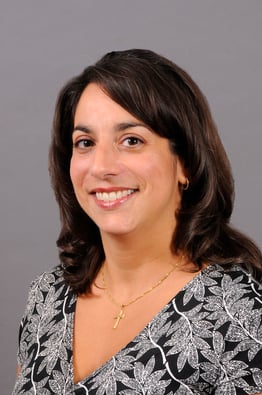 The success of our information literacy program was achieved largely through continuous and collegial collaboration between the library and its campus partners. The Writing Center, faculty, and various committees have all participated in a productive give and take that helps ensure students pick up IL skills early and use them often.
The success of our information literacy program was achieved largely through continuous and collegial collaboration between the library and its campus partners. The Writing Center, faculty, and various committees have all participated in a productive give and take that helps ensure students pick up IL skills early and use them often.
Developing Research Skills with Faculty and the Writing Center
At Dickinson, the writing program is three-tiered: introduction, reinforcement, and refinement. College writing and basic research skills are first introduced as integral parts of the First Year Seminar (FYS) experience. These skills are reinforced within disciplinary courses as students learn the research and writing conventions of their majors, and are refined with a senior capstone experience. Writing and research are naturally intertwined at all stages.
One of the challenges our library faces is integrating strong foundational lessons on IL within faculty courses, while only having limited time with new students. To help overcome this, each year the Writing Center and the Waidner-Spahr Library co-sponsor a workshop for faculty members who are teaching FYS, during which we discuss the goals of the course and best practices in writing and research.
Over the years, faculty members have asked for more guidance on syllabus and assignment creation. We’ve provided faculty members with a color-coded sample syllabus listing activities they may consider utilizing in their classrooms. One color indicates where the writing process is highlighted, another color where IL is highlighted.
Some activities are “stealth lessons” in writing and research. For example, early in the semester students may be required to read a scholarly article and answer questions about it, such as “What is the thesis of the article?” and “What evidence in the article supports the thesis?” As a lesson in IL, students are asked to retrieve the article on their own after reading instructions or watching an online tutorial, rather than having it handed to them. This simple change in pedagogy helps the library in a few ways:
- Acclimating students to the library’s website,
- Providing hands on, practical research experience
- Allowing librarians to focus on more difficult concepts during in-class sessions
IL skills progress throughout the semester along with increasingly difficult writing assignments. Other IL activities embedded in the shared syllabus include choosing the appropriate databases to a given research question, finding resources and evaluating them thoroughly, and using found sources to answer a self-developed research question.
Leadership Opportunities with Administrators and Committees
While our ongoing work with Writing Center is one of the library’s most important collaborations, we engage in other efforts that permeate first-year life. For example, we have worked with the Provost’s office to teach students about academic integrity and plagiarism avoidance via our Academic Integrity Tutorial, required of all new students. Following this successful engagement, we began working with Academic Advising to give remedial help and additional support to students who are struggling with IL in courses, or who exhibit difficulties understanding the principles of academic integrity.
Library staff members also participate with and sit on committees typical of most colleges, like the academic program committee or the budget committee. This helps the library remain in the campus consciousness during decision-making processes, and library staff members maintain awareness of campus concerns. For example, we have reached out to academic support offices to ensure the library staff is aware of issues regarding inclusivity and is actively working to better teaching styles and learning spaces to address it. In partnering with our Race and Ethnicity center, we help staff members recognize and avoid implicit bias. We also communicate with Disability Services so our spaces and resources are accessible to students with different learning styles.
Making the Library Space a Place Where Collaboration Happens
The library highlights student success across academic divisions and extracurricular activities, helping the building to become an important campus gathering space. The library hosts the awards ceremony for the Writing Center’s first-year writing contest, recognizing excellence in first-year writing. Students from all class levels have also participated in library-sponsored events such as poetry readings, internship panels, and art displays. Such events have involved collaboration with the English Department, Belles Lettres (a creative writing club), the Career Center, the Art Department, and the Photography Club.
The Waidner-Spahr Library’s outreach efforts maximize student exposure to library services while keeping the library staff engaged with the community. This helps us develop strong IL programs and keeps students and library staff connected to one another.
/CTA%20Images/Credo_webimage_744x260-Webinar%20(1).jpg?width=652&name=Credo_webimage_744x260-Webinar%20(1).jpg)
